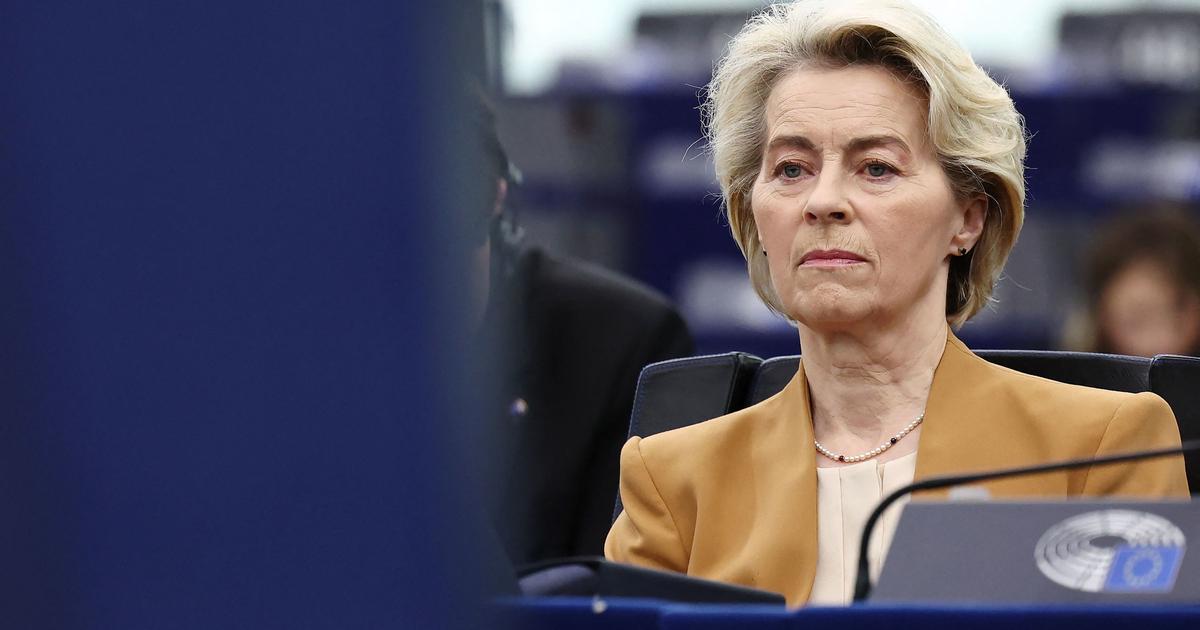Its detractors criticized it for being
“poorly calibrated, unrealistic and unfunded”.
This Tuesday, the President of the European Commission Ursula von der Leyen definitively withdrew the proposed regulation on the sustainable use of pesticides (SUR).
Initially proposed in June 2022 by the European Commission, it provided for a 50% reduction in the use of pesticides by 2030. Rejected by MEPs from the conservative right, this text, one of the strongest of the “
Green Deal”
(Green Deal), will ultimately not have resisted the revolt of European farmers.
Le
Figaro
returns to this Brussels rout full of twists and turns.
“From farm to fork”
To understand Brussels' about-face, we must go back to the launch of the Green Deal, this set of initiatives aimed at achieving the objective of carbon neutrality by 2050. The Green Deal was accompanied by an important agricultural component, called
"
Farm
to
work
.
In other measures (support for organic farming, generalization of nutritional labeling, etc.), the Commission's strategy aimed at a significant reduction in agricultural pesticides in the Union.
The road promised to be long, since only three Member States, including France, had so far taken the initiative to restrict the use of pesticides on a national scale.
The Commission had nevertheless counted on an ambitious proposal: to halve the use and risk of phytosanitary products, including the most dangerous pesticides, compared to the average for the years 2015-2017.
It also targeted a
“20% reduction in the use of fertilizers”
and a
“50% reduction in the sale of antimicrobials for farmed animals and aquaculture”
.
Brussels knows it: although studies are multiplying to highlight the danger of pesticides for humans and nature, the subject remains eminently sensitive.
A large proportion of farmers fear seeing the European production model weakened by the banning of pesticides.
This is why the initial proposal intended to take into account the specificities of each Member State, leaving it to national governments to define, by decree,
“reduction targets”
.
Each country then had to keep its commitments to claim financial aid from the common agricultural policy (CAP).
The Commission also wanted to use the CAP to finance the acceleration of the transition towards production models that use less pesticides.
Drama in Strasbourg
In 2023, the ball passes into the court of MEPs.
Prefiguring the uprising of European farmers, the elected representatives of the PPE group, on the right of the political spectrum, are crushing the normative overdose
“made in Brussels”
.
They are supported by the majority agricultural unions (Copa-Cogeca) fiercely opposed to the project.
Under the scalpel of the Agriculture and Environment committees, the text is gradually unraveled: the flagship Brussels objective is retained, but the deadline for achieving it is postponed to 2035, as is the reference period (2011-2013). instead of 2015-2017).
Changing these settings effectively means lowering the scope of the text.
The EPP deputies also impose an amendment removing the ban on the use of pesticides in
“ecologically sensitive areas”,
with the assent of some of the socialist elected representatives from the South and East of Europe, concerned about protect their farmers.
Some liberal elected officials (Renew) also accept these concessions from the right, in the hope of reaching a
“compromise”
text .
The vote in plenary session, however, ended with a
“coup de théâtre”.
On November 22, the text was rejected by 299 votes against (207 for).
Against all expectations, the defenders of the text preferred to censor the text than to see it adopted in its
“impoverished”
version .
They were in fact counting on a new vote, after referral to a parliamentary committee.
This is how the text on the restoration of nature, another centerpiece of the Green Deal, was narrowly saved.
But nothing goes as planned.
After tough negotiations, MEPs finally ruled out any referral to a parliamentary committee.
In the hemicycle, no one is fooled.
Rejected in Strasbourg, the text no longer has a near future, especially as the legislature is coming to an end.
“There will be no pesticide regulations under this mandate
,” assured the president of the parliamentary Environment committee Pascal Canfin (Renew).
Theoretically, agriculture ministers can adopt a position for a second pass through Parliament and the Commission has the possibility of submitting a new version.
Three months before the start of the agricultural mobilizations, the text is already more or less buried: when it comes to agriculture, the Member States are too divided to agree.
New setback for the Green Deal
The withdrawal of the measure, announced this Tuesday by Ursula von der Leyen, is therefore relatively symbolic.
After having released ballast on fallow land and promised to limit Ukrainian imports, Brussels had to intervene in the phytosanitary field.
And this is especially true since France has agreed to
“pause”
its own Ecophyto pesticide reduction plan.
This is ultimately a sham concession since the text was already more or less buried, which the President of the Commission recognized.
“This text had become a symbol of polarization.
It was rejected by Parliament, there is no more progress in the Council.”
The European Commission also sent an ambiguous signal in its desire to reduce the use of pesticides by renewing the authorization of glyphosate in the EU for 10 years last November.
Brussels may assure that the pesticide subject
“remains relevant”
, but no regulatory project is on the European agenda
.
“The Commission could make a new, much more mature proposal, with the participation of stakeholders
,” suggested Ursula von der Leyen.
Unless it is resurrected during the next legislative session, the text could well join the revision of the regulations on chemical substances (Reach) in the dustbin of the Green Deal...

